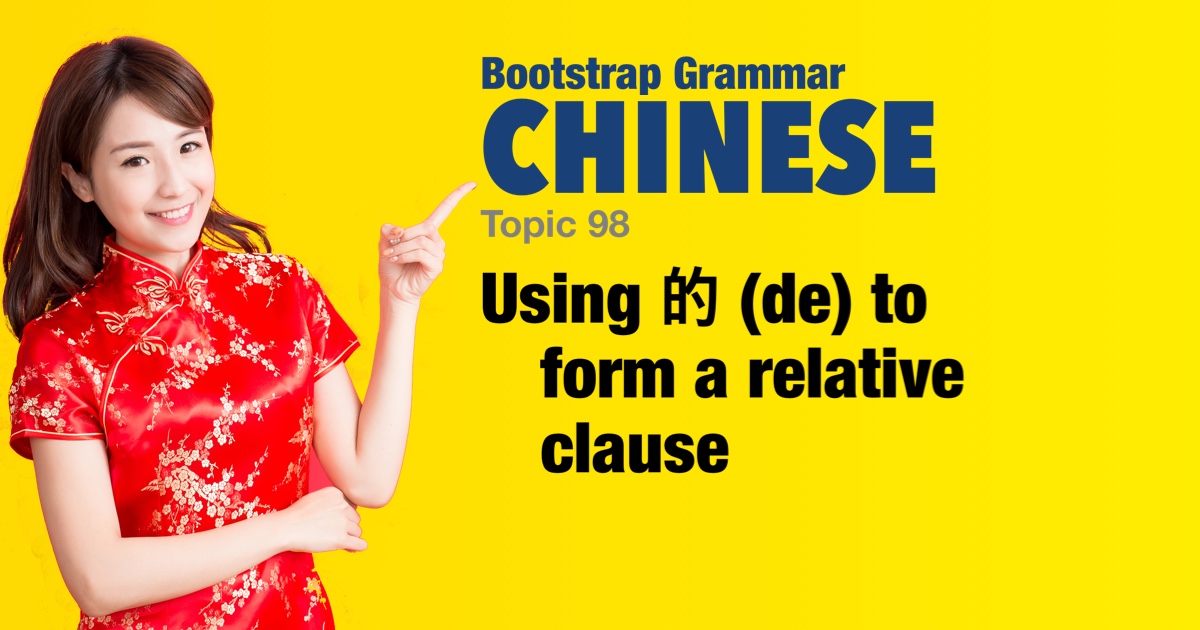Chinese grammar - Using 的 (de) to form a relative clause |
|||
|
|||
In Chinese, yet another function of the particle 的 (de) is to form a relative clause. A relative clause provides more information about a noun, functioning similarly to 'that', 'who' or 'which' in English. |
| Examples: | |
|
他写的信。
tā xiě de xìn. The letter that he wrote.
|
|
|
我买的车。
wǒ mǎi de chē. The car that I bought.
|
|
|
她做的菜。
tā zuò de cài. The dish that she cooked.
|
|
|
我们看的电影。
wǒmen kàn de diànyǐng. The movie that we watched. |
|
|
你送的礼物。
nǐ sòng de lǐwù. The gift that you gave.
|
|
|
他们喜欢的歌。
tāmen xǐhuān de gē. The song that they like. |
|
|
我吃的苹果。
wǒ chī de píngguǒ. The apple that I ate. |
|
|
她画的画。
tā huà de huà. The painting that she drew.
|
|
|
你们读的书。
nǐmen dú de shū. The book that you all read. |
|
|
我没有收到他写的信。
wǒ méiyǒu shōudào tā xiě de xìn. I did not receive the letter that he wrote.
|
|
|
我买的车很贵。
wǒ mǎi de chē hěn guì. The car that I bought was expensive. |
|
|
她做的菜太咸了。
tā zuò de cài tài xián le. The dish that she cooked was too salty.
|
|
|
我没有明白我们看的电影。
wǒ méiyǒu míngbai wǒmen kàn de diànyǐng. I did not understand the movie that we watched.
|
|
|
她爱你送的礼物。
tā ài nǐ sòng de lǐwù. She loved the gift that you gave. |
|
|
他们喜欢的歌是什么?
tāmen xǐhuān de gē shì shénme? What was the song that they liked? |
|
|
我吃的苹果里有虫。
wǒ chī de píngguǒ lǐ yǒu chóng. The apple that I ate has a worm in it.
|
|
|
我听懂了他说的话。
wǒ tīngdǒng le tā shuō de huà. I understood what he said.
|
|
 |
|


 Literally: He wrote letter
Literally: He wrote letter
